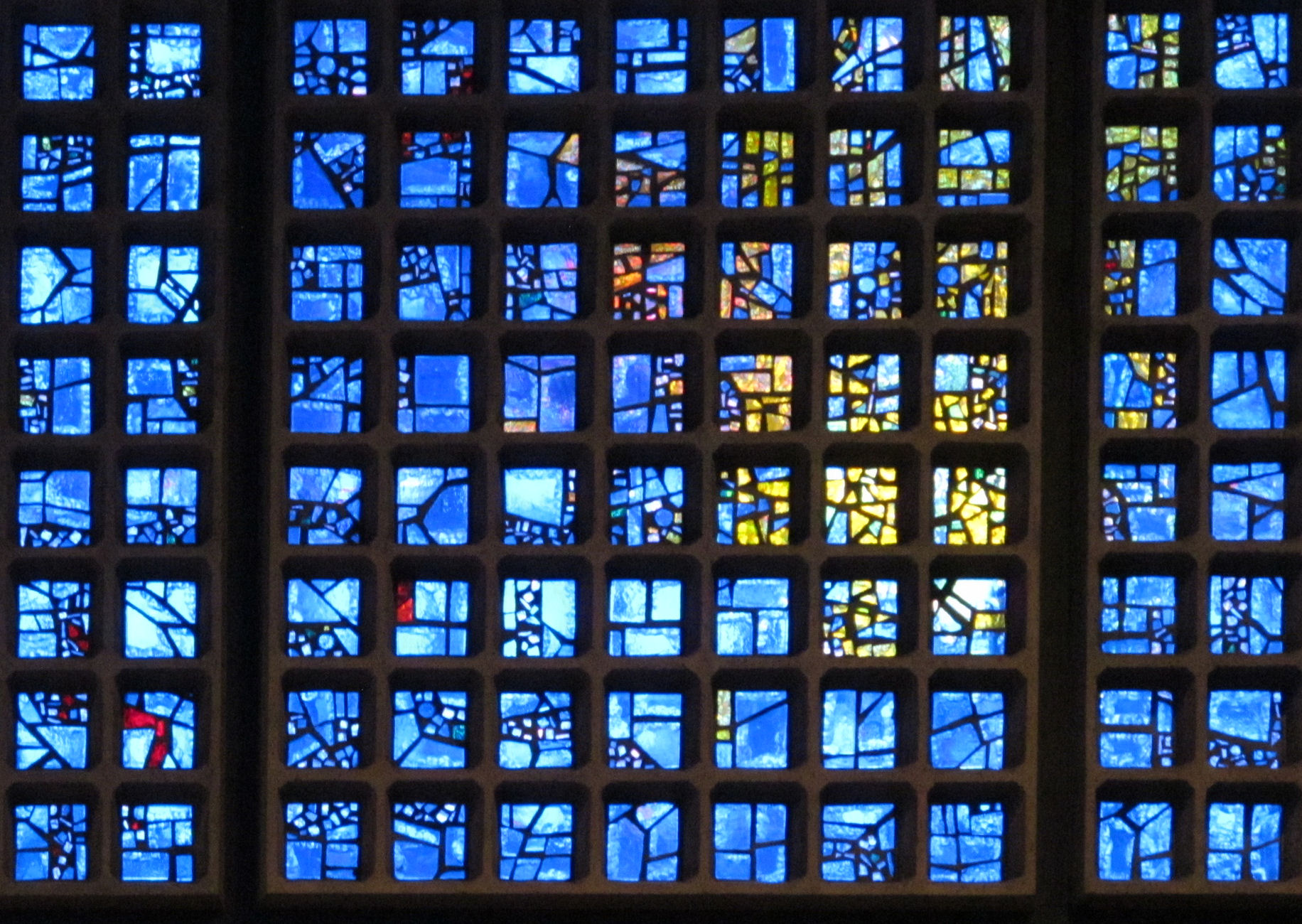Two Trees
29/04/24 11:31
But being an icon of science that also nicely fits on a T-shirt it omits the dark annotation Darwin scribbled alongside: ‘…one generation then should be as many living as now. To do this… requires extinction’. So, this explosive little sketch, often named ‘The Tree of Life’ is, for all intents and purposes, the ‘Tree of Death’. An awful lot of deaths.
I’m not going to do the whole universal time-scale here but just reflect on the fact that it demands a cosmos 14.5-billion-year-old and the death of untold stars just to create the elements needed for life (as we know it, Jim). Let’s say a further eight billion years for our planet to get its act together and initiate abiogenesis. Then to go from simple organic compounds to us — well my head’s hurting with the millions involved.
Truly, evolution does not lead to Us without untold deaths over unimaginable ages: it doesn’t look good on the CV of the God of Everything who is Love. Where is The God of Everything in this Creation carnage? Given that our mathematics of physics breaks down at a place of singularity we can definitely answer “Not there.” to the God-posed question “Where were you when I laid the foundation of the earth?” (Job 38). So maybe answers are not found in the inexorable process of evolution; maybe that’s the wrong place to look.
The library of wisdom we call the Bible offers the theological framework for a resolution. I hesitantly summarise this as ‘death is necessary but not final’. Indeed, this is not just a theological answer: science demonstrates we are made of stardust and the DNA of other lifeforms. Somehow, death is necessary (even if it hurts to admit it).
The Bible answers the question “So, God, what are you going to do about all this death?” with the unlikely answer that the God of Everything became the man Jesus.
Of course, in becoming human, death was inevitable. Except that Jesus Christ put a twist on The End and demonstrated that (completely against all expectation) death could be overcome by Love. Jesus says “I am the resurrection and the life. Those who believe in me, even though they die, will live, and everyone who lives and believes in me will never die” (John 11.25,25). Paul says: ‘…all will be made alive in Christ’, ‘…Death is swallowed up in victory.’ (1 Corinthians 15). New life not only emerged but has been shared: ‘Don’t be afraid, says Yeshua. Far more can be mended than you know’ (1).
And wow, what mending!
Paul says ‘death got the upper hand through one man's wrongdoing…’ (Romans 5.17); but he goes on to say ‘…can you imagine the breath-taking recovery life makes, sovereign life, in those who grasp with both hands this wildly extravagant life-gift, this grand setting-everything-right, that the one man Jesus Christ provides?’ (The Message version) Paul doesn’t just imply that some death gets new life, oh no: you only have to read his corpus of letters to see he has realised that All Creation is destined to get the new-life treatment (check out Romans 5.18; 8.19-22; Ephesians 1.10; 1 Corinthians 15.22).
A Tree of Death has become the Tree of Life. We who willingly (but frequently wonkily) accept Jesus’ death on our behalf, find that an oddly different Life gently guides and infuses our own life-journey. God-inspired evolution in action, death defeated: Homo Sapiens Christous revealed! And we are just the ‘first-fruits’ (1 Corinthians 15.20), there’s so much more to follow.
So then, where was God in all this death? Well, right there in the thick of it – as we draw nearer to the Cross this Lenten season that’s something to slow down and reflect upon.
First published in 3-in-1 the parish magazine for St. Peter's, Belper March 2024
(1) Spufford, Francis (2012) p148. Unapologetic – Why, Despite Everything, Christianity can still make Surprising Emotional Sense. Faber and Faber, London.
I’m not going to do the whole universal time-scale here but just reflect on the fact that it demands a cosmos 14.5-billion-year-old and the death of untold stars just to create the elements needed for life (as we know it, Jim). Let’s say a further eight billion years for our planet to get its act together and initiate abiogenesis. Then to go from simple organic compounds to us — well my head’s hurting with the millions involved.
Truly, evolution does not lead to Us without untold deaths over unimaginable ages: it doesn’t look good on the CV of the God of Everything who is Love. Where is The God of Everything in this Creation carnage? Given that our mathematics of physics breaks down at a place of singularity we can definitely answer “Not there.” to the God-posed question “Where were you when I laid the foundation of the earth?” (Job 38). So maybe answers are not found in the inexorable process of evolution; maybe that’s the wrong place to look.
The library of wisdom we call the Bible offers the theological framework for a resolution. I hesitantly summarise this as ‘death is necessary but not final’. Indeed, this is not just a theological answer: science demonstrates we are made of stardust and the DNA of other lifeforms. Somehow, death is necessary (even if it hurts to admit it).
The Bible answers the question “So, God, what are you going to do about all this death?” with the unlikely answer that the God of Everything became the man Jesus.
Of course, in becoming human, death was inevitable. Except that Jesus Christ put a twist on The End and demonstrated that (completely against all expectation) death could be overcome by Love. Jesus says “I am the resurrection and the life. Those who believe in me, even though they die, will live, and everyone who lives and believes in me will never die” (John 11.25,25). Paul says: ‘…all will be made alive in Christ’, ‘…Death is swallowed up in victory.’ (1 Corinthians 15). New life not only emerged but has been shared: ‘Don’t be afraid, says Yeshua. Far more can be mended than you know’ (1).
And wow, what mending!
Paul says ‘death got the upper hand through one man's wrongdoing…’ (Romans 5.17); but he goes on to say ‘…can you imagine the breath-taking recovery life makes, sovereign life, in those who grasp with both hands this wildly extravagant life-gift, this grand setting-everything-right, that the one man Jesus Christ provides?’ (The Message version) Paul doesn’t just imply that some death gets new life, oh no: you only have to read his corpus of letters to see he has realised that All Creation is destined to get the new-life treatment (check out Romans 5.18; 8.19-22; Ephesians 1.10; 1 Corinthians 15.22).
A Tree of Death has become the Tree of Life. We who willingly (but frequently wonkily) accept Jesus’ death on our behalf, find that an oddly different Life gently guides and infuses our own life-journey. God-inspired evolution in action, death defeated: Homo Sapiens Christous revealed! And we are just the ‘first-fruits’ (1 Corinthians 15.20), there’s so much more to follow.
So then, where was God in all this death? Well, right there in the thick of it – as we draw nearer to the Cross this Lenten season that’s something to slow down and reflect upon.
First published in 3-in-1 the parish magazine for St. Peter's, Belper March 2024
(1) Spufford, Francis (2012) p148. Unapologetic – Why, Despite Everything, Christianity can still make Surprising Emotional Sense. Faber and Faber, London.



